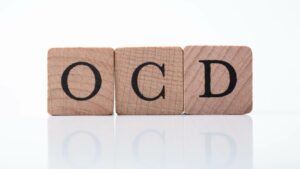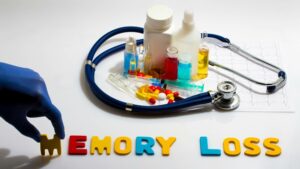It’s no secret that alcohol addiction and OCD are closely related. Many people with OCD struggle with alcohol addiction as well. This can be a difficult combination to deal with, but it is important to understand the relationship between these two conditions. In this blog post, we will discuss the link between OCD and alcohol addiction, and we will offer some tips for dealing with this difficult combination.
Contents
What Does OCD Mean?

OCD is an abbreviation for “Obsessive-Compulsive Disorder”. It is classified as an anxiety disorder, characterized by obsessive thoughts and compulsive behaviors. People with OCD often have difficulty completing everyday tasks because they are preoccupied with their obsessions. For example, a person with OCD might be obsessed with germs and Wash their hands excessively throughout the day.
Compulsions are behaviors that a person with OCD feels compelled to do to ease their anxiety. For example, a person with OCD might have a compulsion to check the locks on their doors multiple times before leaving the house. While compulsions may provide temporary relief from anxiety, they ultimately perpetuate the cycle of OCD.
What Does Alcoholism Mean?
There is no one single definition of alcoholism, but it generally refers to someone who drinks excessively and has trouble cutting back or stopping altogether. Alcoholism is a serious problem that can lead to physical and mental health problems, financial instability, and relationship problems. If you think you might be an alcoholic, it’s important to seek help from a medical or mental health professional.
How Alcohol Can Make OCD Symptoms From Bad To Worse?

It’s no secret that alcohol can be a trigger for OCD symptoms. For many people with OCD, alcohol is a way to self-medicate and escape from their intrusive thoughts and compulsions. But what most people don’t realize is that alcohol can make OCD symptoms worse.
Here’s how:
Alcohol Increases Anxiety
Anxiety is one of the main symptoms of OCD, so it’s no surprise that alcohol can make it worse. Alcohol is a central nervous system depressant, which means it slows down the brain and body. This can lead to feeling more anxious and stressed out.
Alcohol Increases Impulsivity
OCD is all about compulsions and rituals. Alcohol can make these compulsions worse by increasing impulsivity. When you’re under the influence of alcohol, you’re more likely to act on your impulses without thinking about the consequences. This can lead to doing things that are out of character and may even be harmful.
Alcohol Disrupts Sleep
Sleep is essential for managing OCD symptoms. Alcohol disrupts sleep by causing fragmented sleep and reducing REM sleep. This can leave you feeling exhausted and can make it harder to resist compulsions and intrusive thoughts.
If you have OCD, it’s important to be aware of how alcohol can impact your condition. If you find that drinking is making your symptoms worse, it’s best to avoid it altogether. There are plenty of other ways to cope with OCD that don’t involve drinking. Talk to your doctor or therapist about other options.
Can OCD Lead To Alcoholism?
OCD can lead to alcoholism in some cases. It is not known why this is, but it is thought that alcohol may help people with OCD cope with their symptoms. However, this coping mechanism can quickly turn into an addiction. If you think you may have OCD, it is important to seek help from a mental health professional before turning to alcohol.
Alcoholism and OCD are two conditions that can affect each other in several ways. If you have OCD, you may be more likely to develop alcoholism. Alternatively, if you are an alcoholic, you may be more likely to develop OCD. It is not known why these two conditions seem to be linked, but it is thought that they may share some risk factors. If you have either condition, it is important to seek help from a mental health professional.
What Are The Risks Of Using Alcohol To Cope OCD?

There are a few risks to consider when using alcohol to cope with OCD.
Blackouts And Memory Loss
If you drink too much, you may experience blackouts or memory loss. This can make it difficult to stick to your treatment plan and may lead to dangerous behaviors.
Alcohol Abuse
If you find that you are drinking more than you intended or that your OCD symptoms are getting worse, it’s important to seek professional help. Drinking alcohol to cope with OCD can lead to alcohol abuse and addiction.
Dependency
Some people who drink alcohol to cope with OCD find that they need to drink more and more over time to get the same effect. This can lead to dependency and alcoholism.
Health Risks
Alcohol use comes with several health risks, including liver damage, heart disease, cancer, and stroke. If you’re struggling with OCD and alcohol abuse, it’s important to seek professional help to protect your health.
The risks of using alcohol to cope with OCD are blackouts or memory loss, alcohol abuse, dependency, and health risks. If you find that you are drinking more than intended or that your OCD symptoms are getting worse, it is important to seek professional help.
Drinking alcohol to cope with OCD can lead to alcohol abuse and addiction which come with their own set of health risks. It is important to seek professional help to protect your health if you think you may be struggling with OCD and alcoholism.
How To Cope OCD And Alcohol Addiction?

It can be difficult to deal with OCD and alcohol addiction simultaneously. Here are some tips on how to cope:
Talk To Your Doctor
It’s important to communicate openly with your doctor about any mental health conditions you have, including OCD. This way, they can help you develop the best possible treatment plan.
Find A Support Group
There are many online and in-person support groups available for people dealing with OCD and addiction. These groups can provide much-needed social support and allow you to share coping strategies with others who understand what you’re going through.
Seek Professional Help
If your symptoms are severely impacting your quality of life, it may be time to seek professional help. A therapist who specializes in OCD can help you develop effective coping strategies. Your doctor can also refer you to a mental health professional if they feel it would be beneficial.
If you want help with alcoholism, then book a consultation with our experts today through our website of Mantra Care. During the consultation, you will be able to ask any questions that you may have about OCD and get helpful tips on how to deal with it.
Be Patient With Yourself
Recovery from OCD and addiction is a process, not a destination. There will be setbacks, but don’t give up on yourself. Remember that each day is a new opportunity to make progress in your recovery.
These are just a few tips on how to cope with OCD and alcohol addiction. If you or someone you know is struggling with these conditions, please reach out for help. There are many resources available to those who need them. Recovery is possible!
Conclusion
In conclusion, OCD and alcohol can affect each other. If you have OCD, it’s important to be aware of how your condition can impact your relationship with alcohol. And if you drink, it’s important to be mindful of how alcohol can worsen OCD symptoms. If you think you might have a problem with either OCD or alcoholism, please reach out to a mental health professional for help.
If you are looking for affordable Online OCD Counseling MantraCare can help: Book a trial OCD therapy session


